Link buildingis a fundamental component of successful search engine optimization(SEO) strategies. It involves the process of acquiring hyperlinks from other websites to your own, which ultimately contributes to your website's credibility, authority, and visibility in search enginerankings. In this article, we will explore various types of link buildingmethods commonly used in SEO, providing insights into how each approach can help you build a strong and reputable online presence. However, not all links are created equal, and employing different types of link building techniques can greatly impact the effectiveness of your SEOefforts.
What Is Link Building?
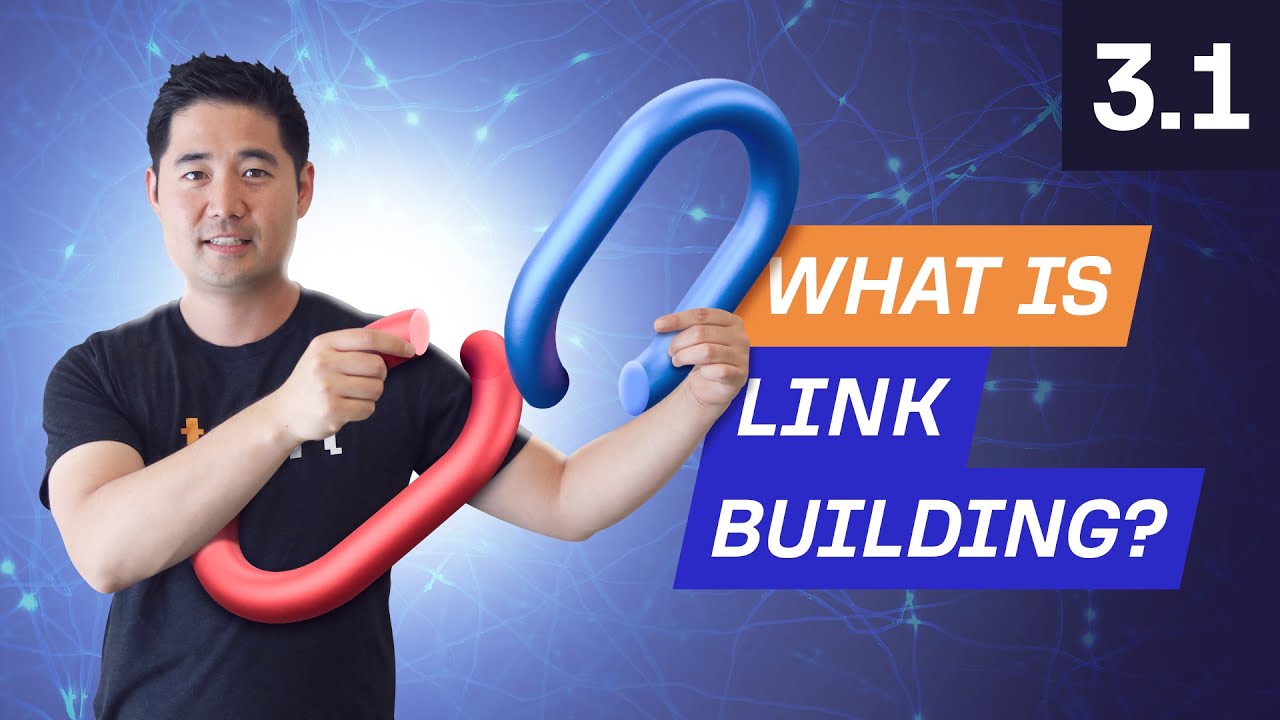
What is Link Building and Why is it Important? - 3.1. SEO Course by Ahrefs
Link building refers to the process of acquiring hyperlinks from other websites to your own. These hyperlinks, also known as backlinks, are essential for search engine optimization (SEO) as they serve as votes of confidence and credibility for your website. Link building involves actively seeking and acquiring links from reputable and relevant websites in order to enhance your website's authority, visibility, and search engine rankings.
When other websites link to your content, it signals to search engines that your website is trustworthy, relevant, and valuable. Search engines interpret these backlinks as endorsements, considering them as indications that your website provides valuable information or resources. As a result, search engines are more likely to rank your website higher in search results, leading to increased organic traffic and visibility.
Link building is a fundamental aspect of SEO because it not only drives traffic to your website but also establishes your website's authority within your industry or niche. By building a strong and diverse backlink profile, you can enhance your website's reputation, attract more visitors, and ultimately achieve better organic search rankings.
Importance Of Link Building
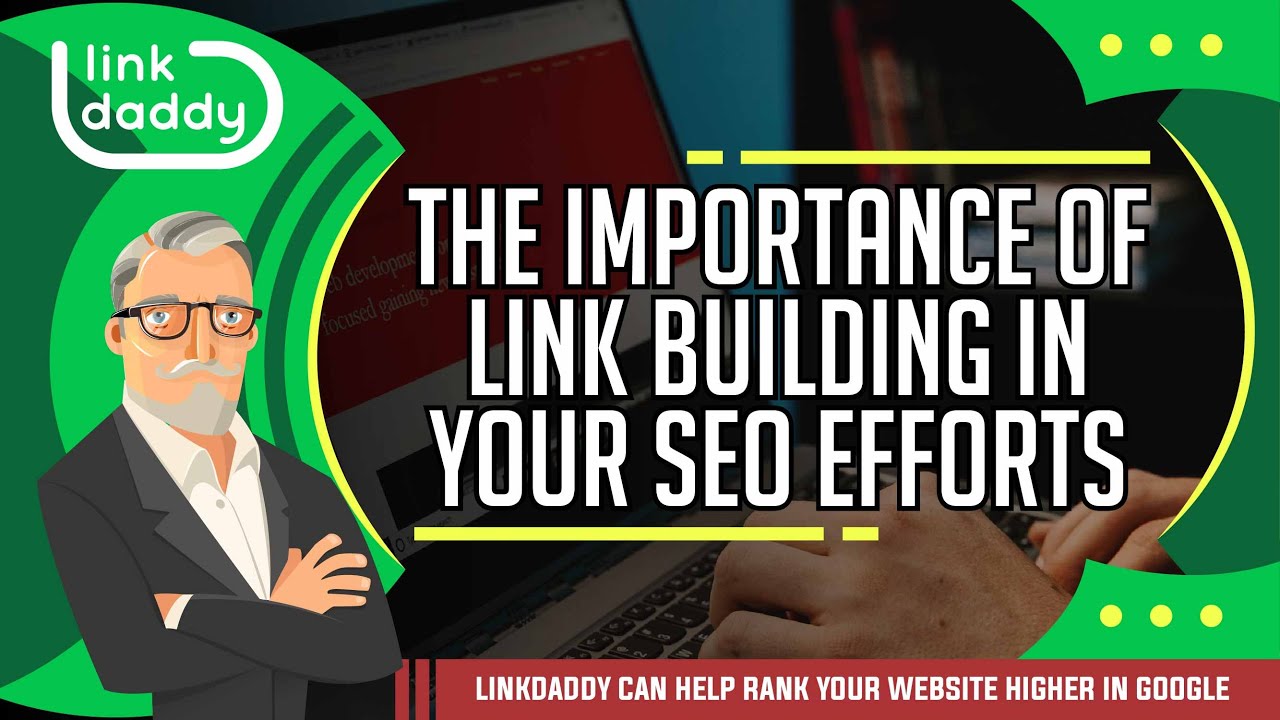
The Importance of Link Building in Your SEO Efforts
Link building holds significant importance in the field of search engine optimization (SEO) for several reasons:
- Improved Search Engine Rankings -Search engines consider backlinks as a crucial ranking factor. Websites with a strong and relevant backlink profile are more likely to rank higher in search engine results pages (SERPs). Link building helps signal to search engines that your website is credible, trustworthy, and deserving of higher rankings.
- Increased Organic Traffic -High-quality backlinks from reputable websites can drive referral traffic to your website. When other websites link to your content, it provides an opportunity for their audience to discover and visit your website, resulting in increased organic traffic.
- Enhanced Website Authority and Reputation -Backlinks act as votes of confidence and endorsements for your website. When authoritative and relevant websites link to your content, it enhances your website's authority and reputation within your industry or niche. This can positively influence how both search engines and users perceive and trust your website.
- Exposure to New Audiences -Link building, especially through guest blogging or content contributions, allows you to tap into new audiences and expand your reach. By having your content featured on other websites, you can expose your brand to a wider audience and potentially attract new visitors and customers.
- Building Relationships and Partnerships -Link building often involves reaching out to website owners, bloggers, and influencersin your industry. This process allows you to build relationships and partnerships with other professionals and entities, fostering collaborations, guest blogging opportunities, and future link-building endeavors.
- Crawlability and Indexation -Backlinks can help search engine crawlers discover and index your website more efficiently. When reputable websites link to your content, search engine bots are more likely to crawl and index your pages, ensuring better visibility in search results.
- Staying Competitive -Link building is a competitive field, and your competitors are likely investing in their own link-building efforts. By actively building a strong backlink profile, you can stay competitive in search rankings, outperform competitors, and establish your website as a trusted authority in your industry.
How Does Link Building Work?
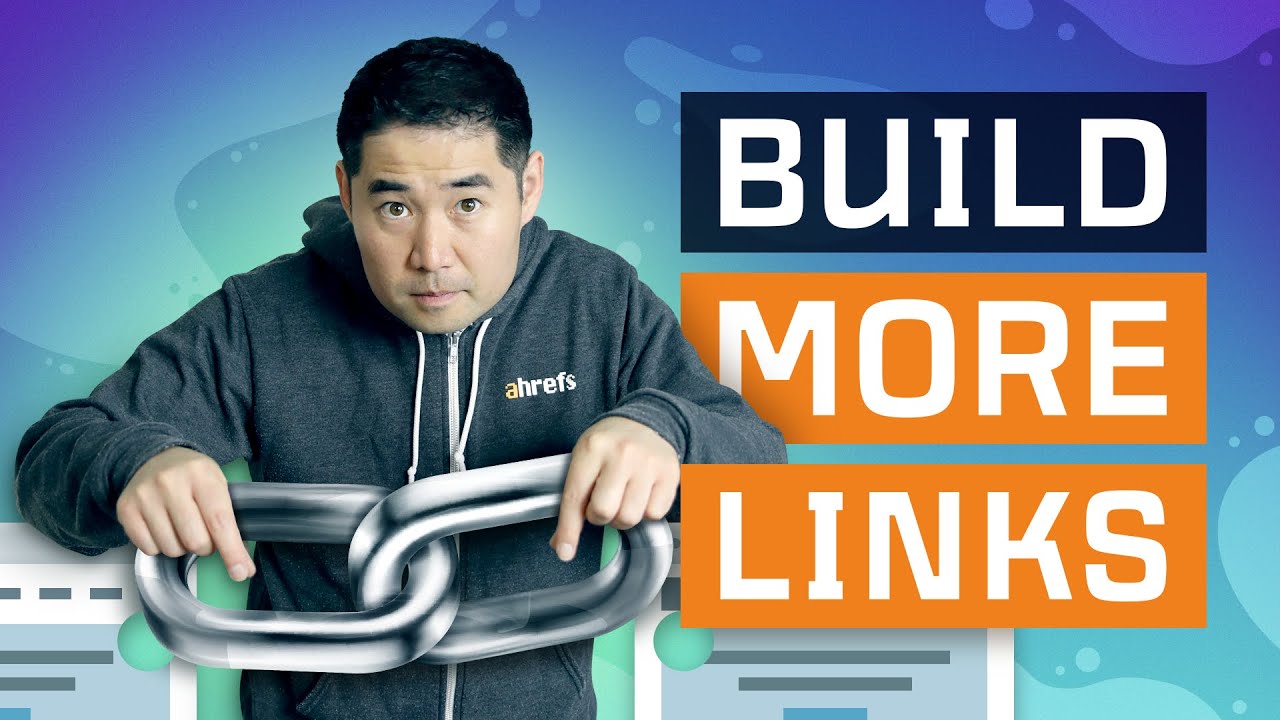
Link Building for Beginners: Complete Guide to Get Backlinks
Link building works by establishing and acquiring hyperlinks from external websites to your own website. These backlinks act as references or recommendations, signaling to search engines that your website is reputable, relevant, and trustworthy. The process of link building involves several key steps:
- Identifying Target Websites -Determine relevant and authoritative websites within your industry or niche that you would like to obtain backlinks. These websites should have a strong online presence and a good reputation.
- Creating High-Quality Content -Develop high-quality, informative, and valuable content that is worthy of being linked to. This can include blog posts, articles, infographics, videos, or other forms of content that resonate with your target audience and provide unique insights or resources.
- Outreach and Relationship Building -Reach out to the owners or administrators of the target websites and establish a connection. This can be done through personalized emails or direct messages, emphasizing the mutual benefits of linking to each other's websites. Building relationships with influencers, bloggers, and webmasters can increase the chances of obtaining backlinks.
- Guest Blogging and Content Contribution:Offer to create guest blog posts or contribute valuable content to other websites in your industry. In exchange for providing high-quality content, you can request a backlink to your website within the author bio or content itself. Guest blogging allows you to tap into existing audiences, gain exposure, and earn backlinks.
- Broken Link Building -Identify broken or outdated links on other websites that are relevant to your content. Reach out to the website owners or administrators and offer your content as a replacement for the broken link. This strategy provides value to the website owner by helping them fix broken links, while also allowing you to gain a backlink.
- Social Mediaand Community Engagement-Engage with your target audience through social media platforms, industry forums, and Q&A platforms. Share valuable insights, participate in discussions, and provide helpful resources. This engagement can attract attention and naturally lead to backlinks as others find your content valuable.
It's important to note that effective link building requires ethical practices and a focus on quality rather than quantity. Building a diverse and natural backlink profile over time helps establish your website's authority and improve its search engine rankings.
Types Of Link Building In SEO
Link building is an essential aspect of search engine optimization (SEO) that involves acquiring hyperlinks from other websites to your own. These links play a crucial role in determining the credibility, authority, and visibility of your website in search engine rankings. However, not all links are created equal, and various strategies can be employed to build an effective link profile.
Natural Editorial Links
Natural editorial links are highly valued in the realm of link building. These links are earned organically without any direct effort or solicitation from website owners. They are the result of other websites finding your content valuable, relevant, and worth referencing. Natural editorial links are considered genuine endorsements of your website's credibility and authority. Here are some key characteristics and benefits of natural editorial links:
- Authenticity and Trust -Natural editorial links are seen as genuine endorsements because they are voluntarily given by other website owners or content creators. Search engines place high trust in these links, considering them as reliable indicators of the quality and relevance of your content.
- Quality and Relevance -Natural editorial links typically come from high-quality websites that are authoritative in their respective fields. When these reputable websites link to your content, it signals to search engines that your website provides valuable information, resources, or insights within the industry.
- Improved Search Engine Rankings -Search engines, such as Google, consider natural editorial links as a crucial ranking factor. When your website earns these links, it can significantly enhance your search engine rankings, leading to increased visibility and organic traffic.
- Increased Referral Traffic -Natural editorial links can drive substantial referral traffic to your website. When users encounter a link to your content within a reputable website they trust, they are more likely to click through and visit your website, expanding your audience and potential customer base.
- Long-Term Value -Unlike some other link-building techniques that may be more short-lived or manipulative, natural editorial links tend to have long-term value. As long as your content remains relevant and valuable, these links can continue to drive traffic and boost your website's credibility over time.
Manual Outreach
Manual outreach is a proactive link-building strategy that involves reaching out directly to website owners, bloggers, influencers, or content creators to request a link to your website. Unlike natural editorial links that are earned organically, manual outreach requires active effort and personalized communication to establish connections and persuade others to link to your content. Here are the key aspects and benefits of manual outreach in link building:
- Targeted Approach -Manual outreach allows you to target specific websites that are relevant to your industry or niche. By conducting thorough research, you can identify websites that align with your content and have the potential to provide valuable backlinks.
- Building Relationships -Manual outreach provides an opportunity to establish relationships with other website owners or influencers in your field. By engaging in personalized communication, you can build rapport, and mutual trust, and potentially foster long-term collaborations beyond just link building.
- Customized Pitches -When reaching out to potential link sources, you can tailor your messages to demonstrate the relevance and value of your content to their audience. Personalized pitches that highlight the benefits of linking to your website can increase the likelihood of receiving positive responses.
- Controlled Link Acquisition -Manual outreach gives you more control over the quality and context of the acquired backlinks. By selecting reputable and authoritative websites, you can ensure that the links obtained through manual outreach contribute positively to your website's credibility and search engine rankings.
- Guest Blogging Opportunities -Manual outreach often includes pitching guest blogging opportunities. By offering to create high-quality content for other websites, you not only secure backlinks but also gain exposure to a wider audience and establish yourself as an industry expert.
To make manual outreach effective, follow these best practices:
- Conduct thorough research to identify websites that align with your content and target audience.
- Personalize your outreach messages, addressing the recipient by name and demonstrating a genuine interest in their website.
- Clearly communicate the value and relevance of your content to the recipient's audience.
- Offer to provide value in return, such as sharing their content or collaborating on future projects.
- Follow up politely if you don't receive an immediate response, as persistence can sometimes lead to positive outcomes.
Guest Blogging

Is Guest Posting Worth It? | How to Boost Your SEO Rank Through Guest Blogging
Guest blogging is a popular and effective link-building strategy in which you contribute content to other websites as a guest author. It involves writing high-quality articles or blog posts that align with the target website's audience and industry. In return for your contribution, you typically receive an author bio or byline that includes a link back to your own website, helping to build valuable backlinks and increase your online visibility. Here are the key aspects and benefits of guest blogging:
- Expanded Reach and Exposure -By guest blogging on other reputable websites within your industry, you can tap into their existing audience and expand your reach. This exposure to a new audience can lead to increased brand visibility, website traffic, and potential customers or clients.
- Enhanced Authority and Credibility -Contributing valuable content as a guest author establishes you as an expert or thought leader in your field. When readers encounter your content on authoritative websites, it boosts your credibility and authority, enhancing your reputation within the industry.
- Quality Backlinks -Guest blogging allows you to acquire high-quality backlinks to your website. These backlinks contribute to your website's link profile and signal to search engines that your website is reputable and valuable, potentially improving your search engine rankings.
- Networking and Relationship Building -Guest blogging fosters relationships with other website owners, bloggers, and influencers. Collaborating with them through guest blogging can lead to future opportunities, such as joint ventures, partnerships, or further content collaborations.
- Traffic Generation -Well-written and engaging guest posts can attract readers to visit your website through the link provided in your author bio or within the content itself. This can result in direct referral traffic from the guest post, leading to potential conversions or engagement with your brand.
To make the most of guest blogging, consider the following tips:
- Research and target websites that align with your industry, have a solid readership and accept guest contributions.
- Familiarize yourself with the website's guidelines and content style to ensure your guest post meets their requirements.
- Create high-quality, informative, and engaging content that provides value to the target website's audience.
- Include relevant and contextual linksback to your website within the content or author bio.
- Engage with readers by responding to comments and questions on your guest post, helping to build connections and foster discussions.
Broken Link Building
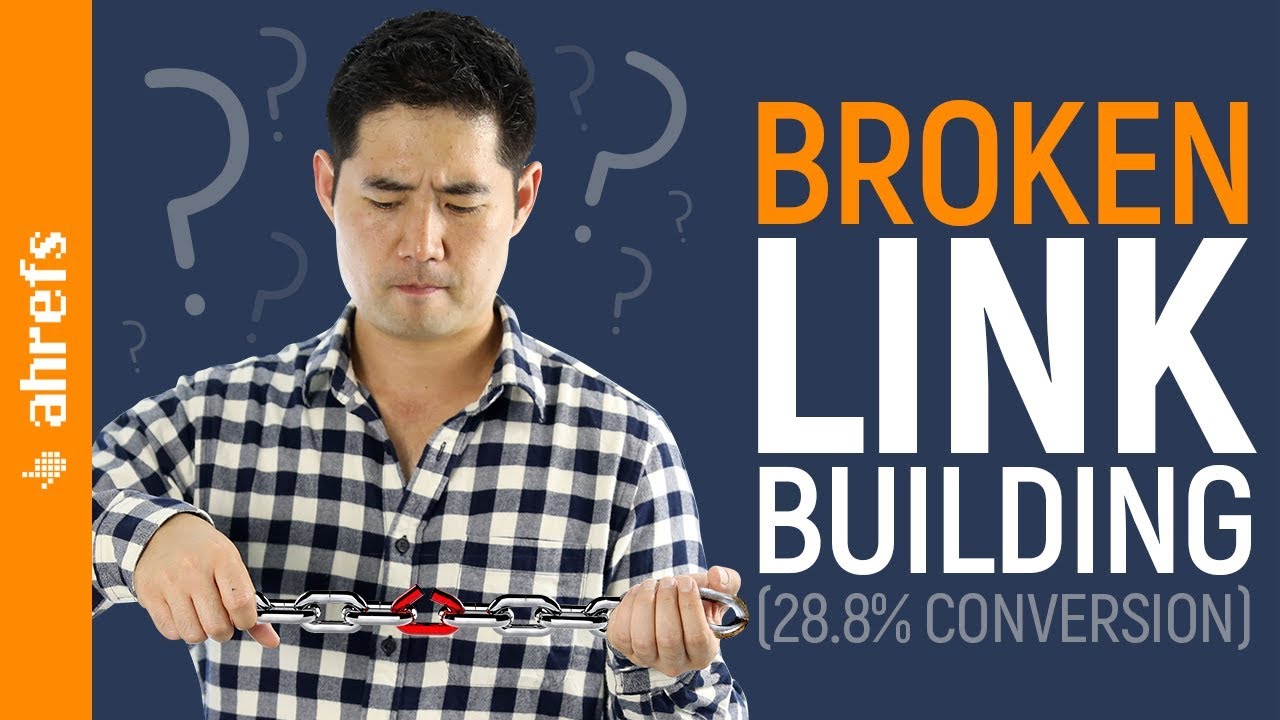
Broken Link Building in Action (Strategies, Outreach Emails and Stats Revealed)
Broken link building is a powerful and resourceful link-building technique that involves finding broken or dead links on other websites and offering relevant replacement content. It is a mutually beneficial strategy that helps website owners fix broken links while providing an opportunity for you to secure valuable backlinks to your own website. Here are key aspects and benefits of broken link building:
- Identifying Broken Links -Using tools or manual inspection, you search for broken or dead links on websites that are relevant to your industry or niche. These broken links can result from web page changes, content removal, or website migrations.
- Offering Replacements -Once you identify broken links, you reach out to the website owners or administrators, notifying them about the broken links and suggesting relevant replacement content from your own website. This replacement content should be similar in topic or theme to the original broken link.
- Providing Value to Website Owners -Broken link building offers a solution to website owners by helping them fix broken links and improve their user experience. By offering replacement content, you provide value to the website owner while creating an opportunity for a backlink to your own website.
- Acquiring Relevant Backlinks -When the website owner accepts your replacement content, they will typically include a backlink to your website within the updated page. These backlinks are relevant and contextual, which can positively impact your website's authority, search engine rankings, and organic traffic.
- Expanding Outreach Opportunities -Broken link building often leads to further relationship-building and collaboration opportunities. By initiating a conversation with website owners, you can establish connections that may extend beyond fixing broken links, potentially resulting in guest blogging opportunities, content partnerships, or future link-building endeavors.
To effectively engage in broken link building, consider the following tips:
- Use tools like broken link checkers, browser extensions, or website crawlers to identify broken links on relevant websites.
- Craft personalized and concise outreach messages to website owners, highlighting the broken link, suggesting replacement content, and explaining the value it offers to their website.
- Ensure that your replacement content is high-quality, relevant, and provides a seamless transition from the broken link.
- Be polite, respectful, and patient when communicating with website owners, as they may receive numerous outreach requests.
Social Media And Community Engagement
Social media and community engagement play a vital role in link building and overall digital marketing strategies. By actively participating in social media platforms and engaging with relevant online communities, you can generate brand awareness, foster relationships, and attract valuable backlinks to your website. Here are key aspects and benefits of social media and community engagement in link building:
- Building Relationships and Trust -Engaging with your target audience and participating in online communities allows you to establish relationships and build trust. By providing helpful insights, answering questions, and sharing valuable content, you position yourself as a reliable and knowledgeable resource, making others more likely to link to your website.
- Amplifying Content -Social media platforms provide an opportunity to amplify your content reach. By sharing your blog posts, articles, infographics, or videos on social media, you increase the chances of them being discovered and shared by others. This can lead to more exposure, engagement, and ultimately, backlinks.
- Connecting with Influencers -Social media platforms are an ideal place to connect with influencers in your industry. By following and engaging with influencers, you can establish relationships, share their content, and collaborate on joint projects. Influencers may subsequently share your content or link to your website, providing valuable backlinks and exposure.
- Participating in Discussions and Q&A Platforms -Engaging in relevant discussions on social media platforms and Q&A websites allows you to showcase your expertise and provide value to others. By offering helpful insights and solutions, you can gain visibility, attract followers, and potentially earn backlinks as others reference or share your contributions.
- Creating Shareable Content -Social media platforms thrive on shareable content. By creating compelling and visually appealing content, such as infographics, videos, or interactive assets, you increase the likelihood of it being shared by others. Each share presents an opportunity for others to discover your content and link back to your website.
- Monitoring and Outreach -Social media platforms provide a valuable avenue for monitoring discussions and conversations related to your industry or niche. By actively listening and participating, you can identify opportunities to contribute, answer questions, and initiate conversations that may lead to backlink opportunities.
When engaging in social media and community engagement for link building, consider the following tips:
- Identify relevant social media platforms and online communities where your target audience is active.
- Share a mix of your own content and other valuable resources to provide a well-rounded experience for your followers.
- Actively engage with others by commenting, sharing, and liking their content. Build relationships and foster a sense of community.
- Be responsive to comments, messages, and inquiries, demonstrating your commitment to engaging with your audience.
- Share content that is optimized for social media platforms, using visually appealing graphics, concise captions, and appropriate hashtags.
Advanced Link Building Techniques
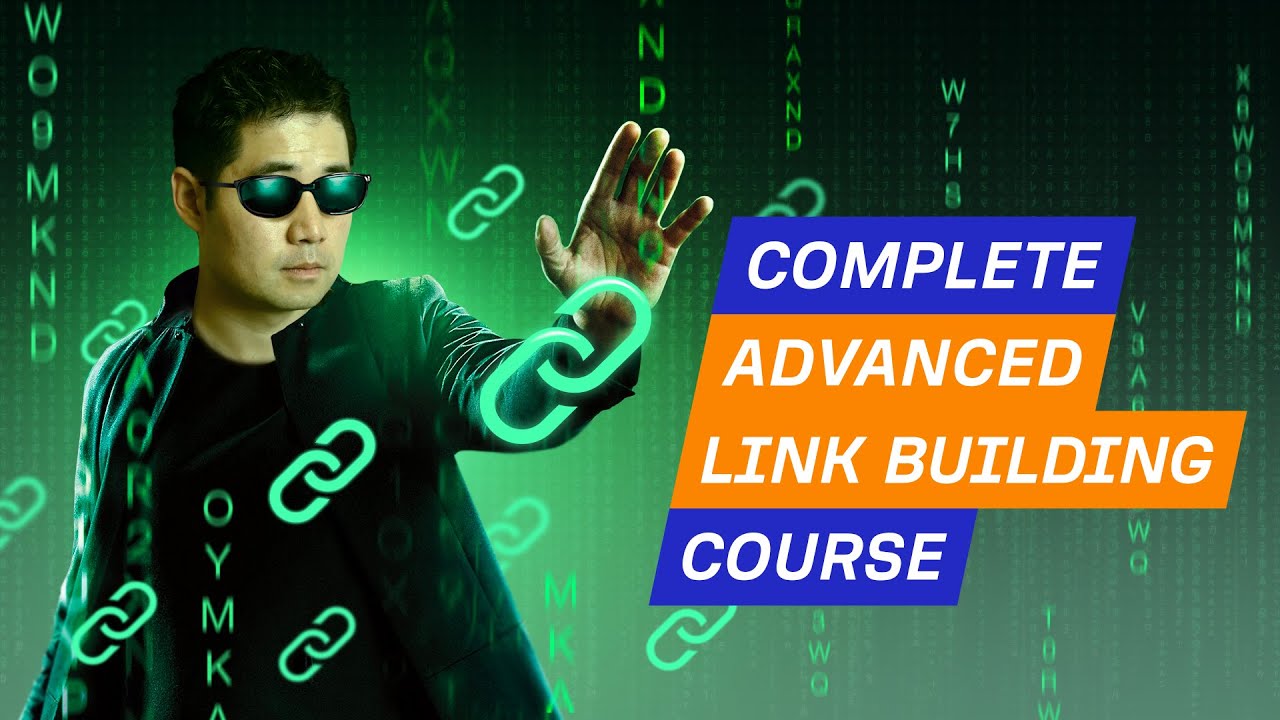
Complete Advanced Link Building Course by Ahrefs
Advanced link building techniques go beyond the traditional methods and require a more strategic approach to acquire high-quality backlinks. These techniques often involve more effort, creativity, and outreach. Here are some advanced link building techniques:
- Skyscraper Technique-The Skyscraper Technique, popularized by Brian Dean of Backlinko, involves finding popular content in your industry, creating a better and more comprehensive version, and then reaching out to websites that have linked to the original content. By offering an improved resource, you increase the chances of earning valuable backlinks.
- Link Reclamation -Link reclamation involves identifying mentions of your brand, products, or content online that lack a link back to your website. By reaching out to the website owner or author and kindly asking for a link to be added, you can reclaim these unlinked brand mentions and turn them into valuable backlinks.
- Resource Link Building -Resource link building involves creating comprehensive, high-quality resource pages or guides on your website. These resources should provide immense value to your target audience. Once created, reach out to relevant websites, blogs, and influencers in your industry and inform them about your resource. If they find it useful, they may link to it as a valuable reference for their audience.
- Broken Link Rebuilding - Similar to broken link building, broken link rebuilding focuses on identifying broken links on other websites. However, instead of suggesting replacement content, you recreate the broken content on your own website and reach out to website owners, offering it as a replacement. This technique requires more effort but can lead to valuable backlinks from websites that previously linked to broken content.
- Guestographics -Guestographics is a strategy that involves creating visually appealing infographics and offering them to other websites as guest content. After creating an infographic, reach out to relevant websites or bloggers and offer it for publication. This technique combines the power of visual content and guest blogging, attracting backlinks and increasing brand visibility.
- Ego Bait -Ego baiting is a technique where you create content that highlights or features influencers, industry experts, or businesses. After creating the content, reach out to those featured and inform them about their inclusion. They may feel compelled to share the content or link to it, increasing your chances of earning valuable backlinks.
- Competitor Analysis -Conduct a thorough analysis of your competitors' backlink profiles to identify potential link opportunities. Look for websites that link to multiple competitors but not to your website. Reach out to those websites and showcase why your content or resources are valuable, encouraging them to link to your website as well.
People Also Ask
How Does Link Building Impact Organic Search Rankings?
Link building influences organic search rankings by signaling search engines about the credibility and relevance of a website, thus improving its chances of ranking higher in search results.
Are All Links Equally Valuable For SEO?
All links are not equal. High-quality links from authoritative websites carry more weight and have a more positive impact on SEO compared to low-quality or spammy links.
Is Link Building An Ongoing Process?
Link building is an ongoing process that requires consistent efforts to maintain and improve a website's link profile, authority, and visibility in search engine rankings.
Conclusion
Building a robust and diverse link profile is crucial for achieving optimal results in SEO. The types of link building discussed in this article encompass a range of strategies, from natural editorial links to manual outreach, guest blogging, broken link building, and social media engagement.
It's essential to approach link building ethically, focusing on providing value, fostering relationships, and creating high-quality content that naturally attracts links. Remember that link building is an ongoing process, requiring continuous efforts to strengthen your online presence and drive sustainable organic traffic to your website.
